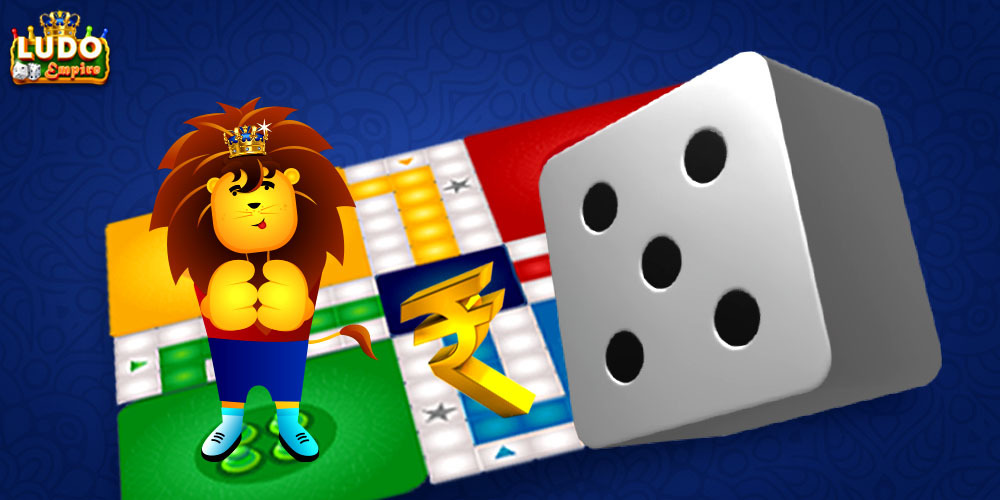Online gaming has evolved from being mere entertainment to a realm where intricate strategies and psychological elements come into play. Among the multitude of games available, online Ludo stands out as a classic that not only engages players’ strategic thinking but also delves into the depths of human psychology. In this article, we’ll explore the fascinating world of online Ludo from a psychological perspective, uncovering the cognitive and emotional aspects that make it both captivating and thought-provoking.
The Power of Decision-Making
At its core, Ludo is a game of decisions. Each turn presents players with choices, whether to move an existing piece forward or bring a new one into play. These decisions might seem trivial, but they offer a glimpse into players’ thought processes and strategic acumen. Analyzing the psychology behind decision-making in Ludo reveals the delicate balance between risk and reward. Players often face the dilemma of whether to prioritize advancing a single piece or spreading their moves across multiple pieces. This dynamic mirrors real-life decision-making scenarios, where individuals weigh short-term gains against long-term benefits.
1. Risk Assessment and Tolerance
The psychology of risk assessment is palpable in Ludo. Players must gauge the potential consequences of each move – the possibility of getting a piece captured or landing in a safe spot. This assessment mirrors the real-world risk evaluation we perform daily. Some players may be naturally risk-averse, preferring cautious moves to ensure their pieces’ safety. Others might exhibit higher risk tolerance, going for daring maneuvers to secure a winning position. Understanding the interplay between risk assessment and individual psychology adds a layer of depth to the seemingly straightforward gameplay.
2. Delayed Gratification and Patience
Ludo teaches the art of delayed gratification. Players often find themselves in situations where waiting a turn or two before making a move can lead to more advantageous outcomes. This concept aligns with psychological studies on patience and self-control. Learning to forego immediate gains for larger rewards down the line is a trait that extends beyond the virtual board and has implications for real-life decision-making, such as financial planning and goal pursuit.
Emotions on the Digital Dice
Beyond its strategic elements, Ludo elicits a range of emotions that reveal insights into the human psyche. From excitement to frustration, these emotional responses provide a window into how players cope with challenges and triumphs.
1. Anticipation and Excitement
Rolling the digital dice in Ludo generates anticipation and excitement akin to the thrill of chance in casinos. The uncertainty of the outcome and the potential for making a game-changing move activate the brain’s reward centers. With a lot of online ludo gaming platforms offering rewards such as power-ups, special dice, in-game coins, and vouchers, certain platforms also provide ludo real money games where players can win real cash, leading to new heights of anticipation and excitement in their gaming. This emotional high mirrors the dopamine release associated with winning and heightens the overall gaming experience.
2. Frustration and Coping Mechanisms
On the flip side, Ludo can trigger frustration when players face setbacks like getting their pieces captured or repeatedly rolling low numbers. This frustration reveals a psychological aspect of resilience and coping mechanisms. Players who can manage their frustration and strategize for a comeback showcase emotional regulation skills – an essential trait in both gaming and real-world challenges.
3. Social Connection and Camaraderie
Ludo’s multiplayer nature fosters social interactions, and these interactions carry psychological significance. Engaging in friendly banter, sharing tactics, and laughing over unexpected outcomes contribute to a sense of camaraderie. These interactions satisfy the basic human need for social connection, even in the virtual sphere.
The Psychological Implications
Understanding the psychological aspects of Ludo online gaming goes beyond the realm of entertainment. It offers valuable insights into decision-making, risk assessment, emotional regulation, and social dynamics. These insights can be harnessed to enhance various aspects of life, from honing strategic thinking skills to managing emotions under pressure.
Conclusion
Online Ludo is more than just a game – it’s a captivating journey into the realms of strategy, decision-making, and human psychology. As players roll the digital dice and navigate the virtual board, they mirror real-world scenarios of risk assessment, patience, emotional responses, and social interactions. By analyzing these psychological aspects, we gain a deeper appreciation for the game’s intricacies and the insights it offers into the human mind. So, the next time you embark on a virtual Ludo adventure, remember that you’re not just playing a game – you’re exploring the fascinating intersection of strategy and psychology.

